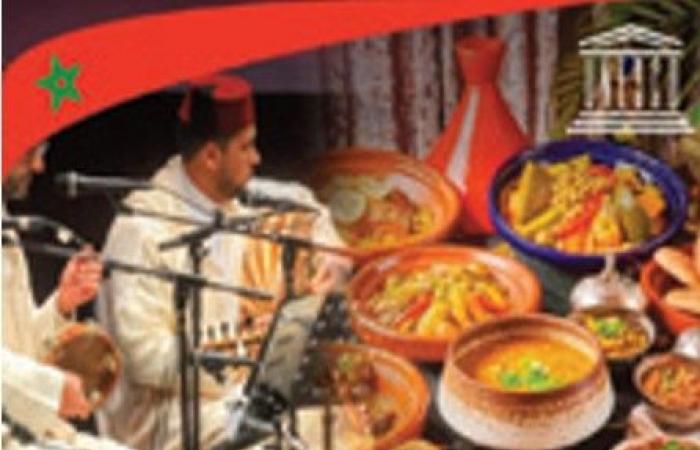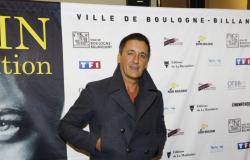
From music to gastronomy, Moroccan cultural heritage shone on Wednesday evening at the UNESCO House in Paris, draped in the colors of the “cradle of humanity” in celebration of the World Day of African and Afro-Culture. descending (JMCA).
During this grandiose event, intended to “celebrate the cultures of the African continent and African diasporas across the world”, Morocco once again shone at the headquarters of the UN organization with a rich cultural program highlighting both diversity and the richness of the ancestral heritage of the Kingdom, as well as its African ramifications and roots.
“Morocco is proud to be here today” to celebrate Africa, said the Kingdom’s permanent delegate ambassador to UNESCO, Samir Addahre, in a statement to MAP on the sidelines of the festivities marking the celebration. of this day, combining debate, cultural interludes and tasting of African dishes.
“Africa is our continent. We are deeply anchored in this African culture,” added the Moroccan diplomat, recalling that the Kingdom “is very active in the context of this network of African and Afro-descendant culture, through the events that we organize and support.”
For Mr. Addahre, it is important to support such events which “reveal this identity, this African culture and the values it carries”.
This is the case of the JMCA whose celebration corresponds, according to him, to “a new reality on the African continent”.
“We are witnessing today the awakening of a new African consciousness, driven in particular by African youth who are demanding respect, recognition, particularly of their identity,” he noted, noting that this youth hopes that “the perception that others have of African culture and identity moves beyond colonial and postcolonial frames of reference”.
Hence the need to move towards “a recognition of African and Afro-descendant identity”, according to the Permanent Delegate Ambassador of the Kingdom who welcomes the initiative of UNESCO to decree January 24 “World Day of African and Afro-descendant culture.
In November 2019, the General Conference of UNESCO declared, on the occasion of its 40th session, January 24 “World Day of African and Afro-descendant Culture (JMCA)”, following a draft resolution presented by Togo and supported by many member states, including Morocco.
-The conference then recalled the importance of African and Afro-descendant culture, particularly for the development of the African continent and for humanity as a whole, underlined the President of the 42nd session of the General Conference of UNESCO, Simona-Mire. la Miculescu, during the opening ceremony of the 2025 edition of the JMCA, under the theme “Preserving and promoting ancestral heritage: a surge of intergenerational fraternity”.
In his eyes, this heritage, in its richness and diversity, is “a source of wisdom, creativity and resilience”, bearer of “universal values which promote peace, social cohesion and human development”, and must this makes him “a source of inspiration for us all”.
Following in the footsteps of all the speakers who spoke during this inaugural session, which took place in the presence of several diplomats accredited to UNESCO, Ms. Miculescu underlined the importance of the transmission of African culture and Afro-descendant and to create bridges between past and future generations, particularly through education, believing that the celebration of the JMCA makes it possible to ensure the sustainability of cultural heritage in favor of a “intergenerational dialogue”.
An appeal was launched on this occasion to all States to take ownership of the World Day of African and Afro-descendant Culture.
In addition to the festive aspect of the event, the musical sequence of which was launched to the joyful rhythms of Dakka Marrakchia in perfect harmony with other African sounds, the day was indeed marked by a panel to deepen reflection on this subject.
Moroccan panelist Ismail Daoud, a communicator specializing in Africa, represented African youth during this exchange, where he underlined the importance of appropriating the narrative of Africa, saying he was convinced that culture is “a instrument of power as much as the economy or commerce.
“We often talk about economic warfare, fierce competition between great powers for control of resources and markets. But what we must understand today is that we are also engaged in a cultural war, a global battle to impose collective narratives, values and imaginations,” he said. And to conclude that Africa “cannot afford to be a spectator in this war of stories. It must establish itself as an influential cultural power, capable of defending and promoting its identity on the world stage.





